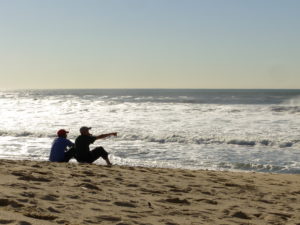 Diarmuid O’Murchu, a fascinating Irish scholar and social psychologist, puts forth one of the best descriptions/explanations of Bohmian of dialogue* in his excellent book, “Quantum Theology.”
Diarmuid O’Murchu, a fascinating Irish scholar and social psychologist, puts forth one of the best descriptions/explanations of Bohmian of dialogue* in his excellent book, “Quantum Theology.”
I had always thought of this process (though I had no name for it) more as a way of being, really. When I thought consciously along these lines, it was in terms of “nonattachment” or “objectivity.”
In my best moments, I strive to live life as a “dialogue.” I.e., unattached to any one point of view, deeply listening, open to all points of view without having to “have it” or “take it on” on a personal level, and being response-able — able to respond — hopefully with the greatest good in mind. At the same time to be aware of my preferences and choices and also responsible for my own condition in so far as I am consciously able (which one works at to continue to become more conscious). And always aware of beauty, supporting it, nurturing it, and being surrounded by it.
This is the closest to a personal “credo” I have recently articulated. Deepak Chopra has said, “Quantum physics are the mechanics of creativity; reincarnation is the quantum leap of creativity…the soul takes on a new expression.”[1] Until recently, I considered Deepak’s comment to refer only to the life/death cycle. Today, I see its application to my own credo and attendant learning spirals: quantum leaps of understanding that leave me dying in one reality while popping into another – one that sometimes defies wordy articulation but can be summed up in a sweeping gaze while at the beach.
 And I have come to understand that I am endeavoring to practice beauty.
And I have come to understand that I am endeavoring to practice beauty.

The dialogue between theology and science is not a dialogue at all;
it is a drama of the human spirit. ~Alexei Nesteruk
* Wikipedia definition: [Bohmian] dialogue has no predefined purpose, no agenda, other than that of inquiring into the movement of thought, and exploring the process of “thinking together” collectively. … allow group participants to examine their preconceptions and prejudices, …explore the more general movement of thought. … Dialogue should not be confused with discussion or debate, both of which, says Bohm, suggest working towards a goal or reaching a decision, rather than simply exploring and learning…
[1] Excerpted from a lecture in the workshop, “Seduction of Silence,” April 2005, Lake Lanier, GA

